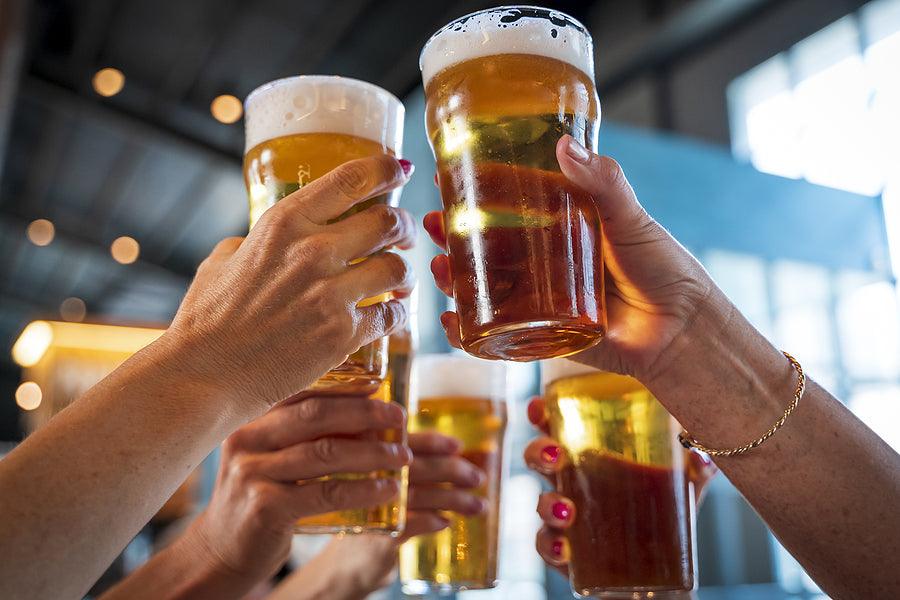
Most of us know that whilst beers can be delicious and make us feel good in the short term, drinking too much can give us more than just a hangover.
Whilst the beer belly is not necessarily always connected to drinking ales, stouts or lagers regularly, it does have a part to play by providing large amounts of empty calories per pint.
Here is why empty calories can cause weight gain and what a low-calorie beer can do to help.
What Are Empty Calories?
Nearly all of the foods we eat contain nutrients, that is to say, they contain ingredients that our bodies break down and convert into compounds they can use to keep the body working properly.
These are vitamins, minerals, proteins, fibre and essential fatty acids, as well as a few other nutrients found in small amounts.
Often they will contain starches, sugars or fats as well, which are broken down and converted into energy stores, which are then themselves broken down when we exercise.
Empty calories are foods that we eat that provide no or very little nutritional value besides energy, which is not a problem in small amounts but can cause people to either gain weight, suffer the effects of malnutrition, or both.
Examples of foods that contain empty calories include foods that are high in fat, cakes and drinks containing a large amount of sugar, and alcohol.
Why Does Beer Contain So Many Empty Calories?
All alcoholic drinks have a lot of calories, even including “healthier” options such as spirits, and the reason for that is due to how alcohol is made and how it works in the body.
Alcohols are made through the fermentation of starches and sugars, themselves a prime source of empty calories, on average around the same amount of calories per gram as pure fat.
Whilst in the past the gruel-esque beers of antiquity may have had more nutritional value, the more complex refining processes used to make modern beers have stripped out nearly all of the nutritional value besides some trace vitamins and minerals you can find elsewhere.
Finally, the cause of a beer belly is often related less to the number of calories in beer but how they are used. We break down and store nearly every other kind of nutrient we process in the body, but alcohol cannot be stored in the same way.
As a result, the body’s systems will prioritise processing and getting rid of alcohol as soon as possible, and whilst it is doing this it is not burning fat or absorbing nutrients.
Beer contains a lot of calories per pint, with the NHS claiming it has the same caloric content as a full-sized Mars Bar.
With that said, there are options and alternatives; low calorie and low alcohol beers will allow for that same taste and feel without the same level of weight gain, and for spirit drinkers switching to diet or zero-sugar mixers or fruit juices can help reduce the effects or at least provide some nutrition.
